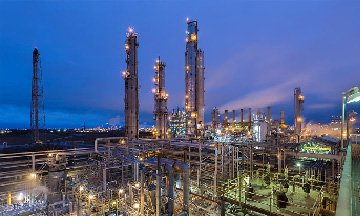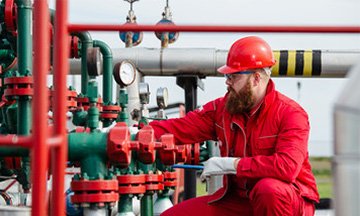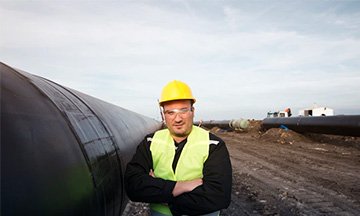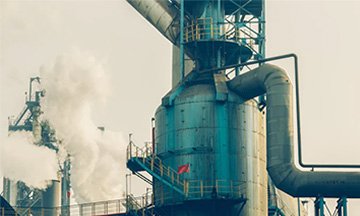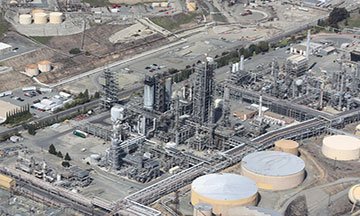Dynamics of Olefins and Polyolefins Business for Petrochemical Industries
| Date | Venue | Duration | Fees | |
|---|---|---|---|---|
| 26 May - 06 Jun, 2024 | Doha | 10 Days | $9150 | Register |
| 27 May - 31 May, 2024 | Dubai | 5 Days | $4750 | Register |
| 17 Jun - 21 Jun, 2024 | Dubai | 5 Days | $4750 | Register |
| 07 Jul - 11 Jul, 2024 | Riyadh | 5 Days | $4950 | Register |
| 08 Jul - 12 Jul, 2024 | Dubai | 5 Days | $4750 | Register |
| 12 Aug - 16 Aug, 2024 | Kampala | 5 Days | $4950 | Register |
| 19 Aug - 23 Aug, 2024 | Dubai | 5 Days | $4750 | Register |
| 02 Sep - 06 Sep, 2024 | Dubai | 5 Days | $4750 | Register |
| 06 Oct - 17 Oct, 2024 | Riyadh | 10 Days | $9150 | Register |
| 21 Oct - 25 Oct, 2024 | Dubai | 5 Days | $4750 | Register |
| 11 Nov - 22 Nov, 2024 | Dubai | 10 Days | $8775 | Register |
| 23 Dec - 27 Dec, 2024 | Dubai | 5 Days | $4750 | Register |
Course Overview
This course shall focus on the value chains, production, and technology used in Olefins and Polyolefins and how it affects the petrochemical industries. It will look into the olefinic feedstock processing, crude oil feedstocks, and polymer manufacturing from raw materials all the way to the finished product that will hit the markets.
What are olefins and polyolefins used for?
This Zoe course will look into the petrochemical industry in general to prove capital productivity of the Olefins and Polyolefins. You will see utilisation of hydrocarbons, crude oil pricing and the risks involved in producing, refining and doing business with Olefin and Polyolefins.
Where are polyolefins used?
This Zoe course will help the participants understand the petroleum industry dynamics and how the Olefins and Polyolefins contribute to it. It has been designed to help them learn more about the value of Olefins and Polyolefins and the success factor that can improve the ultimate financial performance to help organisations survive.
It will highlight the following:
- Recognising and effectively dealing with the rising environmental impact issues from the rapid and recent growth of the use of plastics
- Identifying and determining project management evaluation and the main key considerations in the appropriate selection of the right technology, operating cost, and capital for projects
- Understanding the very basics of the refining operations and the main businesses of petrochemical industries
- Determination of the chemical grouping and arrangement of hydrocarbons chains in the main processes eventually add to economic value and the measure of conversion and yield in a refinery
- Understanding the basic Olefins and Polyolefins innovation, future trends and challenges
- Differentiating petrochemical business models and each merit with examples of working business models/strategies of integrated oil companies, both national oil and non-oil dealing companies
- Polymer main processes of manufacturing
- Economic aspects of the feedstocks and polymers
- Commercial production of Olefins and Polyolefins
- Associated petrochemicals markets and their factors
- Technical aspects of the entire Olefin and Polyolefin value chain
Course Objectives
By the end of this course, the participants will have learnt to:
- Explain the main benefits to customers and other employees of Polyolefins and Olefins
- Be deeply familiar with the three major types of Polyethylene types
- Apply acquired knowledge of the feedstock for this industry
- Gain a complete understanding of the rapid growth of Polypropylene
- Comprehend the wide-ranging benefits and resourcefulness of Olefins
- Master the value chain in the petrochemical industries from raw Oil and Gas to finished plastics and other important and sophisticated materials utilised in improving the quality of life
- Confidently discuss the petrochemical industry’s technical terms, main concepts, and buzzwords with other employees and investors
- Enhance knowledge of Oil and Gas production, operations, refining, and demand forecasting
Training Methodology
The course will be delivered with reputable tutors who are masters and experienced in their area of domain using verified methods to enable the participant to fully utilise the materials used in teaching this course.
All the participants are encouraged to be engaging and interactive to make the lesson’s feedback oriented.
PowerPoint presentation, lectures, pdf, and use of videos where relevant shall be employed. This Zoe course will employ the ‘Do-Review-Learn-Apply’ framework of performance.
Organisational Benefits
- An insight into the competitive nature of this market segment
- An insight into current market trends
- Relevant problem-solving in the petrochemical industry
- Complete background and a deep exploration of the market sector
- Increased and improved technical knowledge
- Clarification of how to achieve goals set by stakeholders in the Olefins and Polyolefins and petrochemical industry
Personal Benefits
Participants who will undertake the training provided by this course stands to benefit in the following ways:
- Mastering the core competencies of the petrochemical industry
- Be fully cognizant of the success factors of the different petrochemical industry i.e., IOC’s, NOC’s, pure refining companies, pure chemical companies, and their relative strengths and weaknesses
- Sharpen their business skills by learning those techniques that improve capital productivity and operational excellence
- Added confidence and a better understanding of a complex global market
- State of the art business related knowledge
- Networking with delegates from similar backgrounds
- Ability to share latest market knowledge
- Potential to educate fellow employees on similar matters
Who Should Attend?
- Market analysts who are interested in the Polyolefins and Olefins sector
- Industrial engineers
- Industrial chemists
- Chemical plant technicians
- Business development
- Process engineers
- Professionals in polymer and petrochemical companies
- Researchers need more commercial background
Course Outline
Module 1: Introduction
- The petrochemical industry
- Costs, margin and prices
- Ethylene and Propylene markets
- What makes the petrochemical industry unique?
- Industry profitability
- Origins and history of the industry
- Strategies employed by major players
- Natural gas/shale gas revolution
- Petrochemicals, gas, and petroleum
- How coal fits in the strategy
- Olefin derivatives and uses
- Market growth and industry costs
- Petrochemical plant
- Integration of Olefins and Polyolefins
Module 2: Refining and supply of crude oil
- Essence of international supply – the global reserves, trade, and production
- Crude oil quality indicators
- Oil industry units and conversion factors
- Crude oil classifications
- Refining, marketing, transportation, and exploration of crude oil
- Crude oil characterisation by assays
- Industry units
- Refinery configurations
- Coking
- Topping
- Cracking
- Hydro skimming
- Fundamentals of Oil economics
- The delivered price of crude oil
- Value of crude oil and determining factors in crude selection
Module 3: Value chain in petrochemical economics
- Olefin economics
- Feedstock costs and their impact on ethylene cost
- Differences in costs and margins between producing regions
- Steam cracker margins
- Olefins: costs, consumption, margins, and investment
- Costs and pricing
- Aromatics sources, business, and technologies
- Supply and demand
- Refining gas separation
- Styrene – routes to manufacture
- Sources of aromatics
Module 4: Feedstocks, equipment, and processes
- Refinery petrochemical integration
- What do we mean by integration of refining & petrochemicals?
- Identify the seven basic chemicals
- Explore what are the benefits and challenges of integrating refineries with petrochemicals are
- Feedstock for petrochemical
- Difference between fuels and chemicals
- World Gas Oil industry basic functions
- Different raw materials for petrochemicals from C1 to C50
- Different feedstock sources for petrochemicals
- Alternate value of hydrocarbons
- Petrochemical equipment and processes
- The measure of conversion and yield in a refinery
- The basic refining operations and processes
- Rearrangement of hydrocarbons chains
- Overview of hydrocarbons groups in crude oil
Module 5: Polymers
- Manufacturing methods
- Key properties
- Plastics
- Polymer markets and applications
- Polymer types
- Polyethylene fundamentals
- Business structure
- Margins and consumption
- How they are made
- What is their future?
- Utilisation
- LDPE, LLDPE, and HDPE
Module 6: Polyolefins as a business
- Regional trades
- Consumption trends
- Major players and their profiles
- New capacity investment
- 2008 and the slump
- Green polyolefins
- Sustainability of polymers
Module 7: Value chain markets for petrochemicals
- Petrochemical markets – mod9
- Forecasting
- Global market and business
- Market research
- Chemical industry market segmentation
- Planning techniques
Module 8: Project evaluation and strategies
- Project evaluation in petrochemicals
- Project selection criteria
- Capital cost estimate accuracy
- Project management evaluation steps
- Comparative measures of performance
- Consideration for technology selection, capital, and operating costs for the project
- Project management and core activities, including considerations
- Investments appraisal methods
- Conclusions
